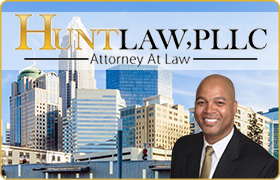Charlotte Divorce & Family Law Lawyer, North Carolina
Sponsored Law Firm
-
 x
x

Click For More Info:
-
Hunt Law, PLLC
601 East 5th Street, Suite 100 Charlotte, NC 28202» view mapDivorce & Family, Child Custody, Child Support SMART, AGGRESSIVE AND CLIENT FOCUSED
Our firm founded in 2008 and is located in Charlotte, NC. We are committed to providing the highest quality of compassionate, thorough & aggressive legal representation.
800-942-7610
Carlos R. Emory
✓ VERIFIEDC. Randy Emory was born and raised in the small, rural town of Wilson NC. Throughout his childhood, Mr. Emory displayed many leadership qualities. In ... (more)
Jessica Elizabeth Price
✓ VERIFIEDJessica E. Price is licensed to practice law in the state of North Carolina. Born in Mount Holly, New Jersey, Jessica has expressed her desire to beco... (more)
Kirk Robert Lundell
✓ VERIFIEDFollowing a successful 15-year career managing several well-known retail stores throughout the country, Mr. Lundell decided to refocus his passion for... (more)
Rashad Blossom
Rashad Blossom believes that all people deserve to be treated with fairness and compassion, especially under the law. He used to work at a large law f... (more)
Vicki Wilson
✓ VERIFIEDAttorney Vicki Webb is an experienced attorney who Cares About her Clients. She is ready to talk with you and guide you through the stressful legal pr... (more)
 Gregory Hunt Charlotte, NC
Gregory Hunt Charlotte, NC






